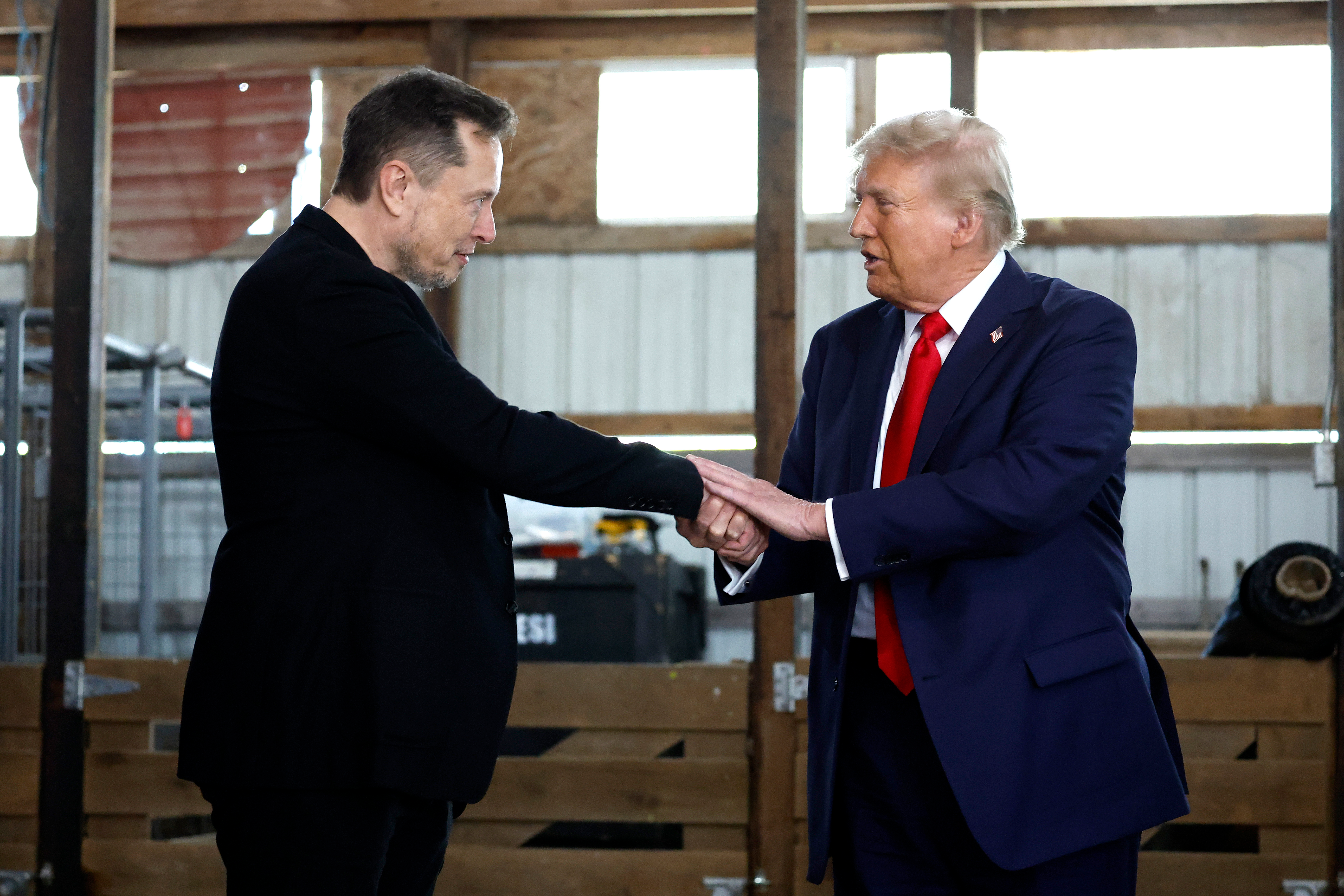Elon Musk Might End Up Running The Very Regulatory Bodies That Keep Him In Line
Trump wants Musk to be part of his cabinet, but Musk probably can't even serve as an advisor without serious conflicts of interest
Elon Musk is a man that forces us to ask the timeless question first put to us by graphic novelist Alan Moore; who watches the watchers? The New York Times as a great breakdown of all the damage this overpowered and over-wealthy individual could have should Trump both take the White House and keep his promise to put his wealthy donor in a position of power.
Musk is the most wealthy person on the planet — probably in all of human history — which already gives him an almost unlimited amount of power. He's also had a ton of run-ins with regulatory bodies, from the Securities and Exchange Commission to the Environmental Protection Agency and now the National Highway Safety Administration. Now that he is full-throat backing Trump however, even the weak federal checks on his machinations could soon go by the wayside:
Elon Musk's influence over the federal government is extraordinary, and extraordinarily lucrative.
Mr. Musk's rocket company, SpaceX, effectively dictates NASA's rocket launch schedule. The Defense Department relies on him to get most of its satellites to orbit. His companies were promised $3 billion across nearly 100 different contracts last year with 17 federal agencies.
His entanglements with federal regulators are also numerous and adversarial. His companies have been targeted in at least 20 recent investigations or reviews, including over the safety of his Tesla cars and the environmental damage caused by his rockets.
Given Mr. Musk's immense business footprint, he will be a major player no matter who wins the election.
But he has thrown his fortune and power behind former President Donald J. Trump and, in return, Mr. Trump has vowed to make Mr. Musk head of a new "government efficiency commission" with the power to recommend wide-ranging cuts at federal agencies and changes to federal rules.
That would essentially give the world's richest man and a major government contractor the power to regulate the regulators who hold sway over his companies, amounting to a potentially enormous conflict of interest.
Through a review of court filings, regulatory dockets and government contracting data, The New York Times has compiled an accounting of Mr. Musk's multipronged business arrangements with the federal government, as well as the violations, fines, consent decrees and other inquiries federal agencies have ordered against his companies. Together, they show a deep web of relationships: Instead of entering this new role as a neutral observer, Mr. Musk would be passing judgment on his own customers and regulators.
NASA, the Departments of Defense, the Interior, Transportation, Commerce, Homeland Security — the guy is a significant force in all of these and more already. Should Trump win, an unelected Musk might gain the ability to squash anyone who might stand in his way. His oversized influence is already causing problems:
One such example was the test launch this month of Starship, SpaceX's newest rocket. NASA has agreed to pay the company as much as $4.4 billion to take astronauts to the surface of the moon on two future missions — although the dates will depend on when all the equipment is ready. So far, Starship has not flown any humans.
But the Federal Aviation Administration held up this most recent test launch for weeks, in part because of questions about harm SpaceX has caused to wildlife near its Texas launch site, a delay that infuriated Mr. Musk.
"We continue to be stuck in a reality where it takes longer to do the government paperwork to license a rocket launch than it does to design and build the actual hardware," SpaceX said in a statement.
This wouldn't be the first time that a rich person tried to get their hands on the levers of power in the U.S. without winning an election. In 1933, the Business Plot would have seen wealthy businessmen overthrow president Franklin D. Roosevelt and install a Nazi-friendly military dictatorship, for instance.
No matter who you are voting for, handing any single person this much power is a terrible idea. Head over to the New York Times to read more.
